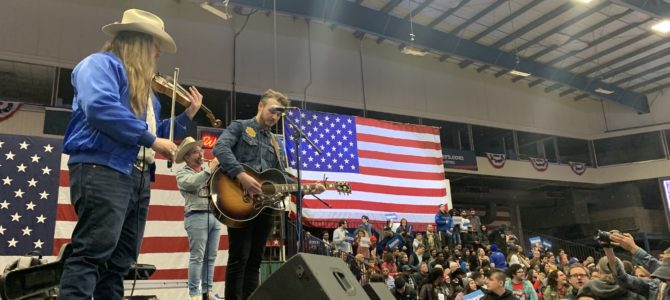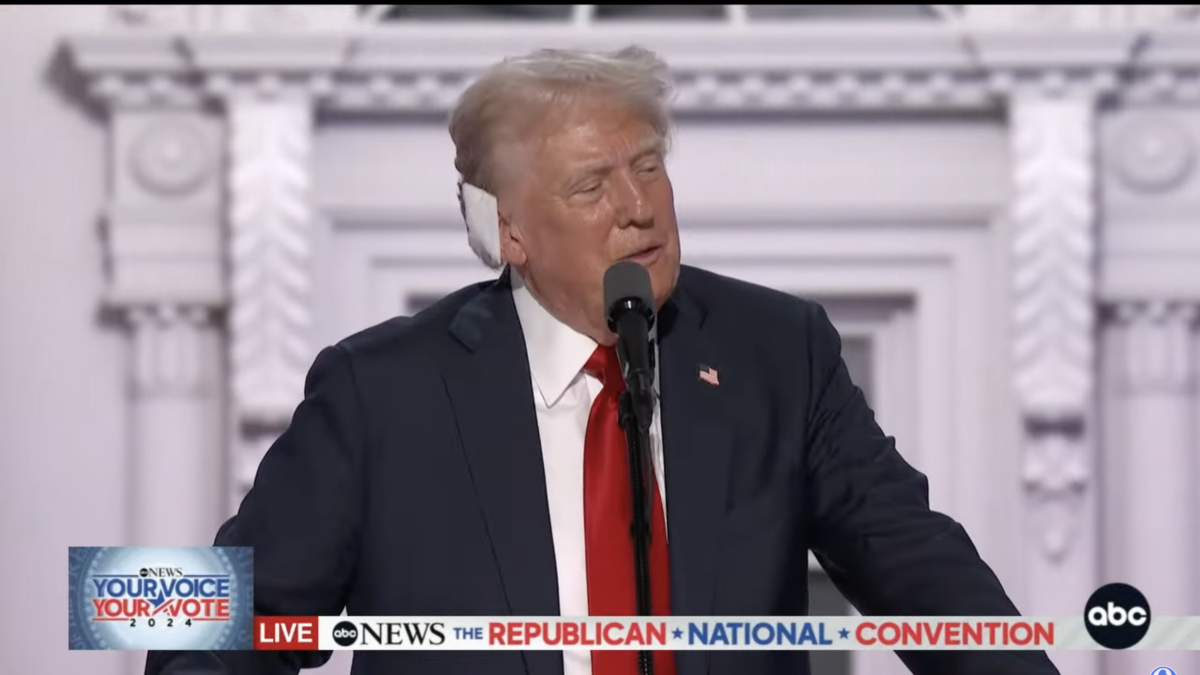MESQUITE, Texas — North Texans voting in the second-largest Super Tuesday state in just two weeks arrived at the dirt-floored rodeo arena 13 miles east of Downtown Dallas to hear Democratic frontrunner Bernie Sanders at a campaign rally Friday night.
“I have never been to a rodeo in my life but I do work in Washington, DC and I do hear a lot of bullshit,” Sanders told the crowd of nearly 5,000 people before confidently announcing, “We’re gonna win Texas.”
Polling released the same day tells a different story. The latest University of Texas/ Texas Tribune poll of Democratic voters in Texas found no candidate was close to winning a majority of delegates in the state’s complicated Democratic primary, stirring talks of a brokered convention this summer. While Bernie Sanders did lead at 24 percent (as more than one Sanders supporter informed me), former Vice President Joe Biden was closely behind at 22 percent, Sen. Elizabeth Warren at 15 percent, and former New York City Mayor Michael Bloomberg at 10 percent.
Texas is a large, expensive state to win delegates in, leaving the door open for billionaires like Bloomberg, who has already committed $3 million to secure television spots in the San Antonio, Austin, Dallas-Fort Worth, El Paso, Harlingen-Weslaco, and Houston markets. The Texas Democratic Party awards its 228 pledged delegates to candidates who win the most votes in each state Senate district, each with populations of about 806,000—a lot of ground to cover for a single campaign.
Spending this lovely Valentine’s evening at the Bernie Sanders rally in Mesquite, TX pic.twitter.com/JHRdxoAiGs
— Madeline Osburn (@madelineorr) February 15, 2020
While there is a steady presence of “Mike 2020” yard signs in wealthy North Dallas suburbs, Sanders’ Friday stump speech took on anti-Wall Street, anti-corporate, and anti-billionaire themes. When I asked attendees about who they would support as the Democratic nominee if not Sanders, the answer was always “not Bloomberg.”
In addition to Sanders’ usual “racist” and “sexist” insults toward Trump, the Vermont senator complained that, “Donald Trump and his friends who believe in greed and corruption think that life is stepping on people in order to make as much money as you can.” He then promised a federal $15 minimum wage to roaring applause.
Frustration with the Democratic National Committee was shared by both Sanders, who told the crowd his campaign was about “taking on the democratic establishment,” and rally attendees. Sharon Braden, 53, described Democrats as “butt hurt” for refusing to accept the party has shifted left. “We don’t need a centrist candidate. That’s what Hillary was. They’re trying to do the same thing this time.”
Melissa Horadan, 29, cited unfair treatment of Sanders by the mainstream media, particularly CNN’s skewed debate question in which a moderator assumed Warren’s premise that Sanders made sexist comments to her. Another voter, Katie Kasmir, 30, said she couldn’t even find coverage of Sanders when scanning the Washington Post during the New Hampshire primary. “Every article was like ‘Mayor Pete,’ ‘Klobuchar,’ over and over again and I was like ‘Where is Bernie?’”
“The establishment is becoming very nervous…
This campaign is not just about Trump, it’s about taking on the Democratic establishment” pic.twitter.com/9NOo3HFDGe— Madeline Osburn (@madelineorr) February 15, 2020
Channing Humphrey, an undecided African-American voter from Bedford, Texas said he was previously a Biden fan, even before Biden became Obama’s vice president, but is dismayed by his performance as a candidate. “He’s been too dependent on his early frontrunner status and is only running on polling better than Trump,” Humphrey said. “He hasn’t promised anything new.”
Biden’s campaign strategy is heavily dependent on winning southern states, and his close second-place behind Sanders in Friday’s poll is certainly significant considering his brutal losses in Iowa and New Hampshire. In 2016, Democratic nominee Hillary Clinton, who shared some of the same moderate, African-American support Biden now relies on, blew out Sanders in Texas with 65 percent of the vote, compared to Sanders’ 33 percent.
“I think we’re going to do great in Nevada and South Carolina,” Sanders told the rodeo arena before asking for their Texas vote. “If we stand together and keep our eyes on the prize…no matter how big and how powerful the one percent is, we will defeat them.”









